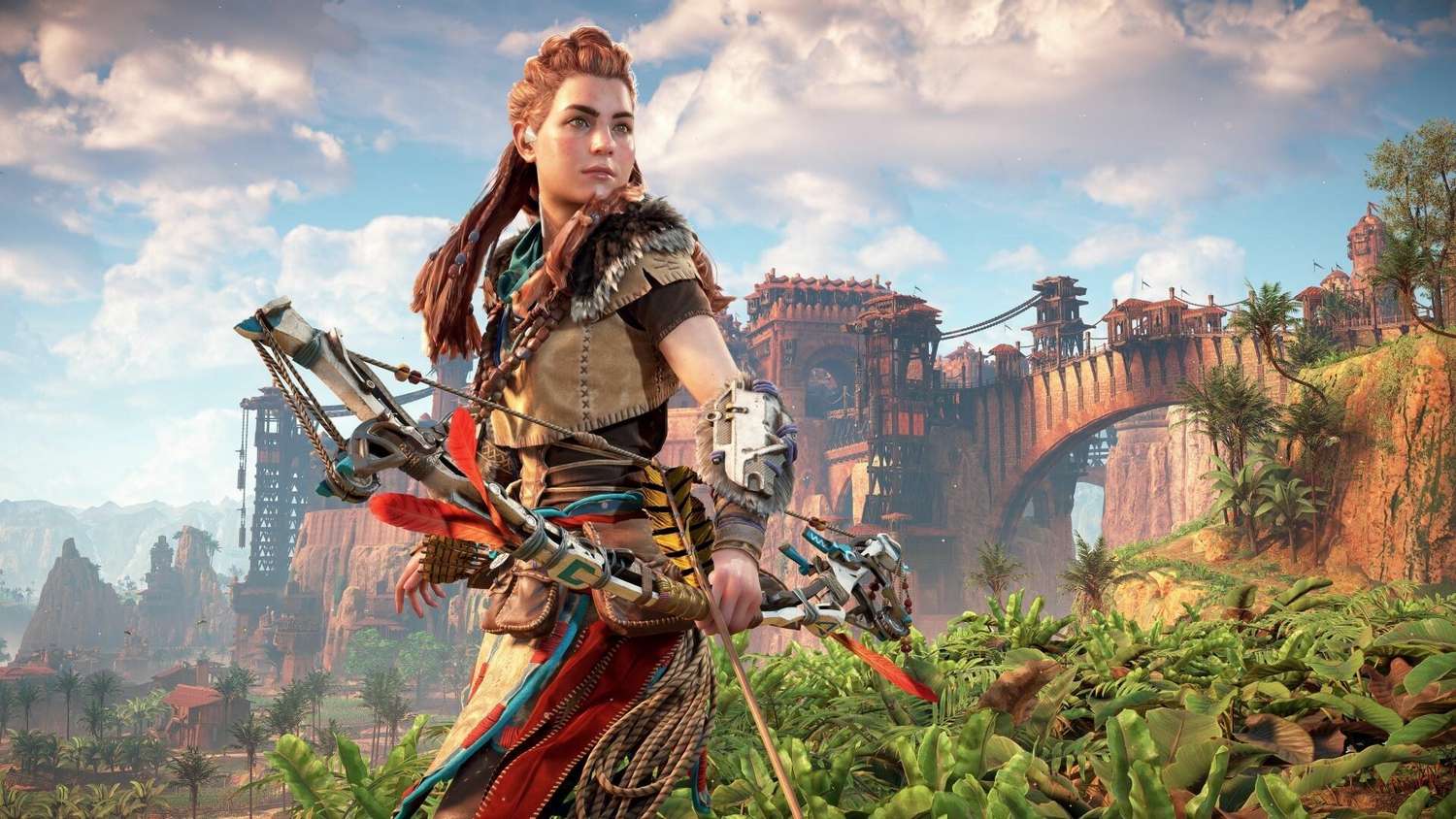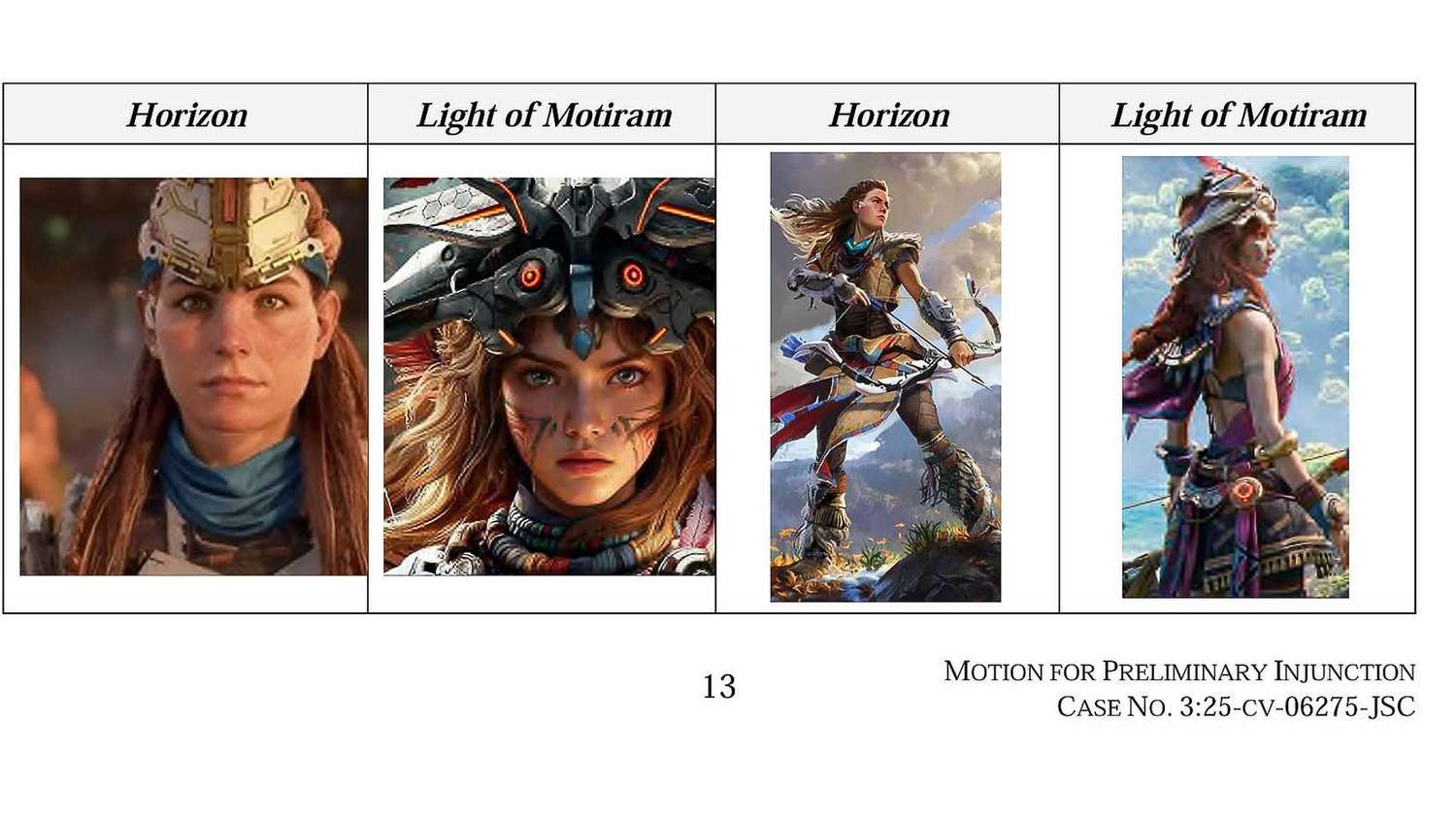Sony Escalates Legal Battle: Files Injunction Against Tencent’s Alleged ‘Horizon’ Clone, ‘Light of Motiram’
Popular Now
 Counter-Strike 2
Counter-Strike 2
 God of War Ragnarök
God of War Ragnarök
 PUBG Mobile
PUBG Mobile
 NBA 2K24
NBA 2K24
 Free Fire Max
Free Fire Max
 Auto X Drift Racing 3
Auto X Drift Racing 3
 Candy Crush Saga
Candy Crush Saga
 Schedule I
Schedule I
 Among Us
Among Us
 Poppy Playtime
Poppy Playtime  Gaming Titan Showdown: Sony Demands Halt to Tencent’s Promotion of ‘Light of Motiram’ Over Copyright Concerns
Gaming Titan Showdown: Sony Demands Halt to Tencent’s Promotion of ‘Light of Motiram’ Over Copyright Concerns
San Francisco, CA — October 18, 2025 — The ongoing high-stakes legal confrontation between gaming powerhouse Sony Interactive Entertainment (SIE) and Chinese tech giant Tencent has intensified. Late this week, Sony filed a motion for a preliminary injunction with the U.S. District Court for the Northern District of California, seeking to immediately bar Tencent from utilizing key elements of its forthcoming open-world survival game, Light of Motiram, which SIE has repeatedly labeled a “slavish clone” of its critically acclaimed Horizon Zero Dawn and Horizon Forbidden West franchises.
This move is the latest development in a significant intellectual property lawsuit first filed by Sony in July 2025. Sony’s motion specifically targets the continued promotion and development of elements in Light of Motiram that it claims directly infringe upon its copyrighted content and character trademark—primarily focusing on the unmistakable resemblance of the game’s protagonist to the Horizon series’ iconic heroine, Aloy, as well as similar creature designs, visual motifs, and even a specific trailer melody.
The Core of the Infringement Claim: A ‘Fiery Red-Haired’ Protagonist
The preliminary injunction request is a sharp response to Tencent’s recent motion to dismiss the original lawsuit, where the latter argued that the game merely utilizes “well-trodden” and “ubiquitous genre ingredients” common in the open-world survival game market. Sony’s filing vehemently refutes this defense, calling Tencent’s claims “nonsense” and insisting that the damage to the Horizon brand’s goodwill and reputation is already underway.
Key elements that Sony seeks to block via the injunction include:
- The use of a “fierce tribal warrior huntress characterized by fiery red hair” that allegedly closely mirrors Aloy.
- Visuals, storyline elements, and the post-apocalyptic setting featuring robot animals that strongly parallel the Horizon universe.
- A specific musical composition in the Light of Motiram promotional material that is claimed to be strikingly similar to the main theme of Horizon Zero Dawn.
Sony argues that Tencent’s actions have already caused “consumer confusion,” pointing to numerous public and media reactions that immediately identified Light of Motiram as an apparent knock-off upon its initial announcement in late 2024. Furthermore, internal filings reveal that Sony had previously declined a proposal from Tencent to license the Horizon IP for a project, further bolstering SIE’s stance that Tencent proceeded with an unauthorized clone after the refusal.
Tencent’s ‘Shell Game’ Allegation and The 2027 Release Delay
Tencent, through its motion to dismiss, attempted to argue that Sony’s lawsuit was “unripe” for consideration. This argument stemmed from the fact that, shortly after the initial suit was filed, Tencent quietly scrubbed numerous allegedly infringing screenshots and assets from the Light of Motiram Steam page and pushed the game’s projected release date back significantly from late 2025 to Q4 2027. Tencent implied that this delay negates any immediate threat of irreparable harm—a prerequisite for a preliminary injunction.
Sony’s counter-filing decisively dismisses this strategy as a “shell game.”
“Tencent remarkably contends SIE’s claims are unripe because—despite having announced and continuously promoted its game for months—Tencent (purportedly) delayed Light of Motiram’s release until 2027 after SIE sued. This is nonsense. The damage is done—and it continues.”
The injunction also takes aim at Tencent’s corporate structure, accusing the conglomerate of utilizing various subsidiaries, including Polaris Quest, Aurora Studios, and Proxima Beta, to “shield Defendants” and obscure true liability. Sony asserts that the parent company is ultimately responsible for the alleged copyright and trademark infringement.
Implications for the Global Gaming IP Landscape
The legal battle has drawn immense attention from the entire global gaming industry. A preliminary injunction, if granted, could force Tencent to immediately cease all promotion utilizing the contested assets, potentially requiring a complete and costly redesign of the game’s core visual and character identity. The case is being closely watched as a test of the legal protections afforded to video game intellectual property, particularly in a market increasingly dominated by cross-platform releases and rapidly deployed look-alike titles.
The injunction hearing is tentatively slated for late November 2025, and a decision is expected to follow shortly thereafter. Regardless of the outcome of the preliminary injunction, the overall copyright infringement lawsuit—which could result in significant financial damages and a permanent ban on the game’s release—is set to proceed to the discovery phase, promising a protracted and expensive legal showdown between two of the industry’s most valuable entities.
For gamers and industry observers, the stakes are exceptionally high: a ruling in Sony’s favor could set a major precedent for the protection of unique game aesthetics and character designs against alleged “slavish copies” in the international market, defining the boundaries of creative inspiration versus clear-cut infringement.











 Gaming Titan Showdown: Sony Demands Halt to Tencent’s Promotion of ‘Light of Motiram’ Over Copyright Concerns
Gaming Titan Showdown: Sony Demands Halt to Tencent’s Promotion of ‘Light of Motiram’ Over Copyright Concerns
